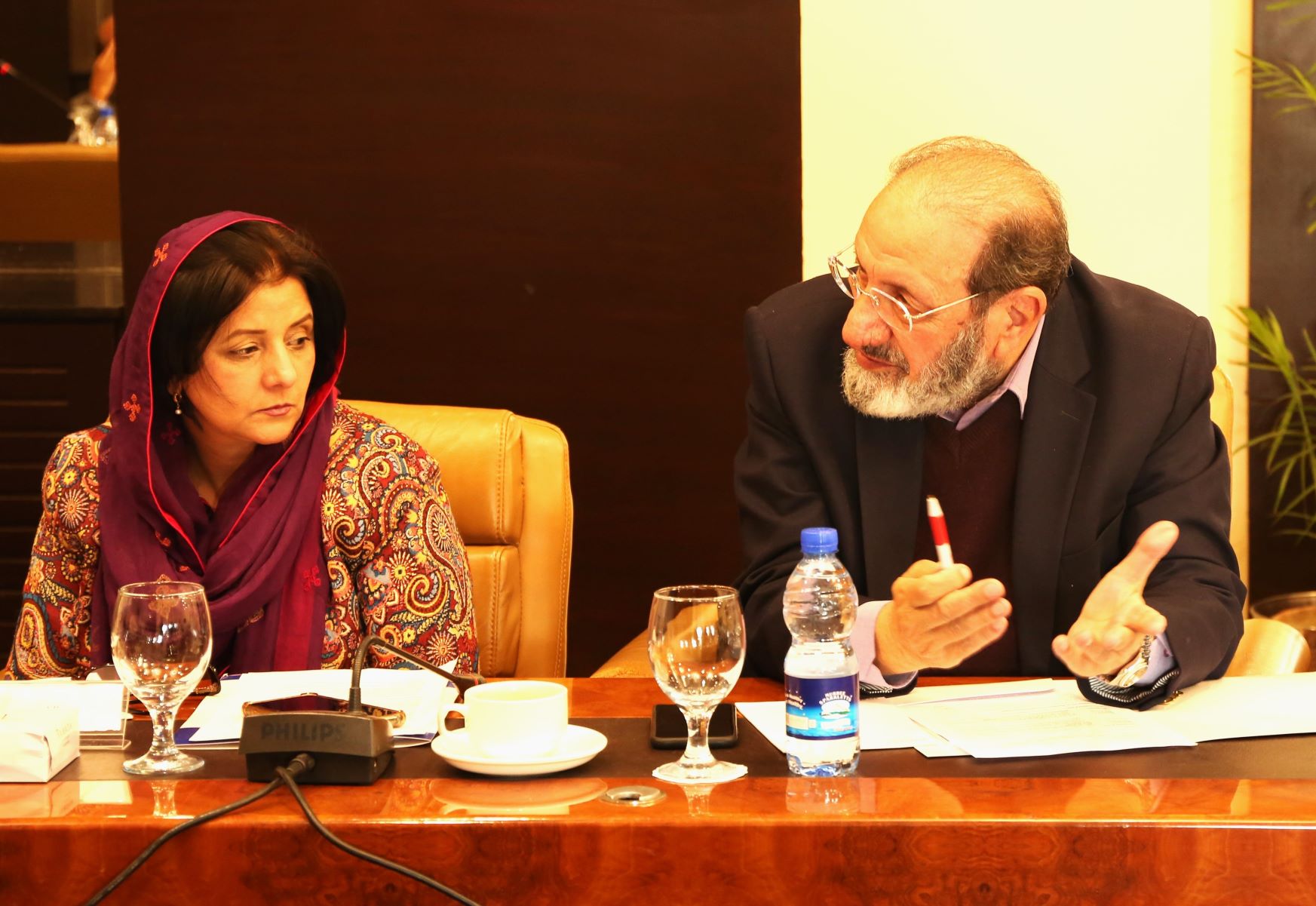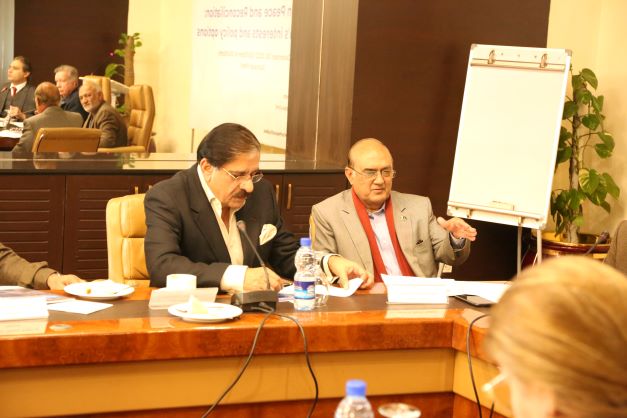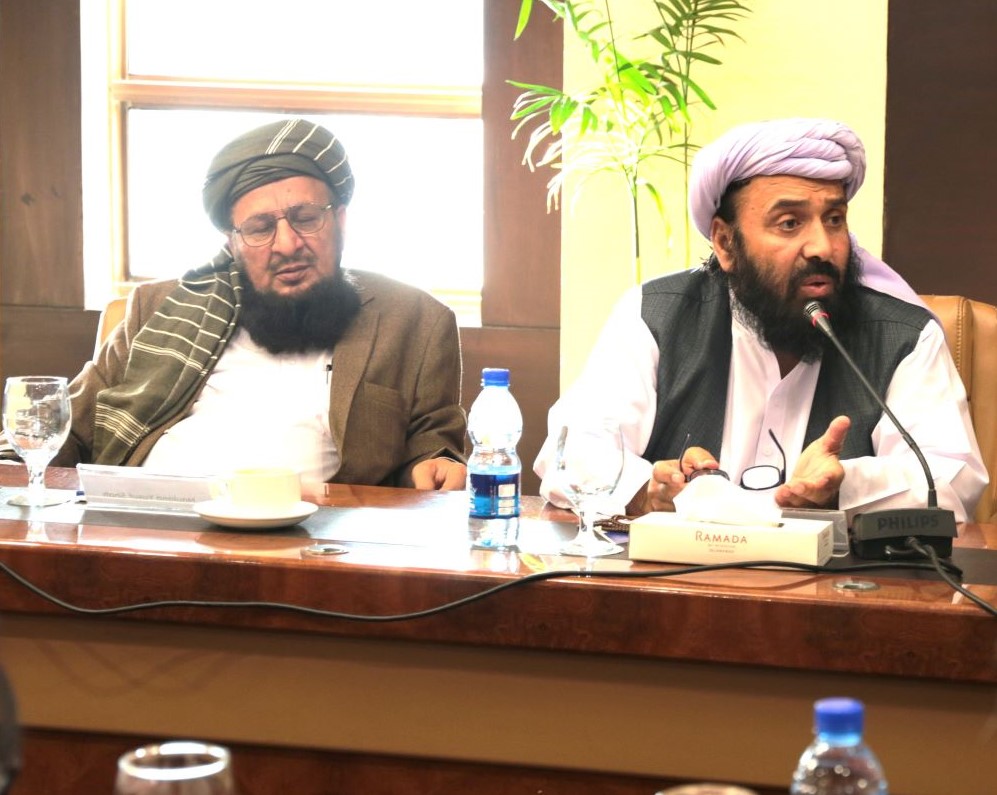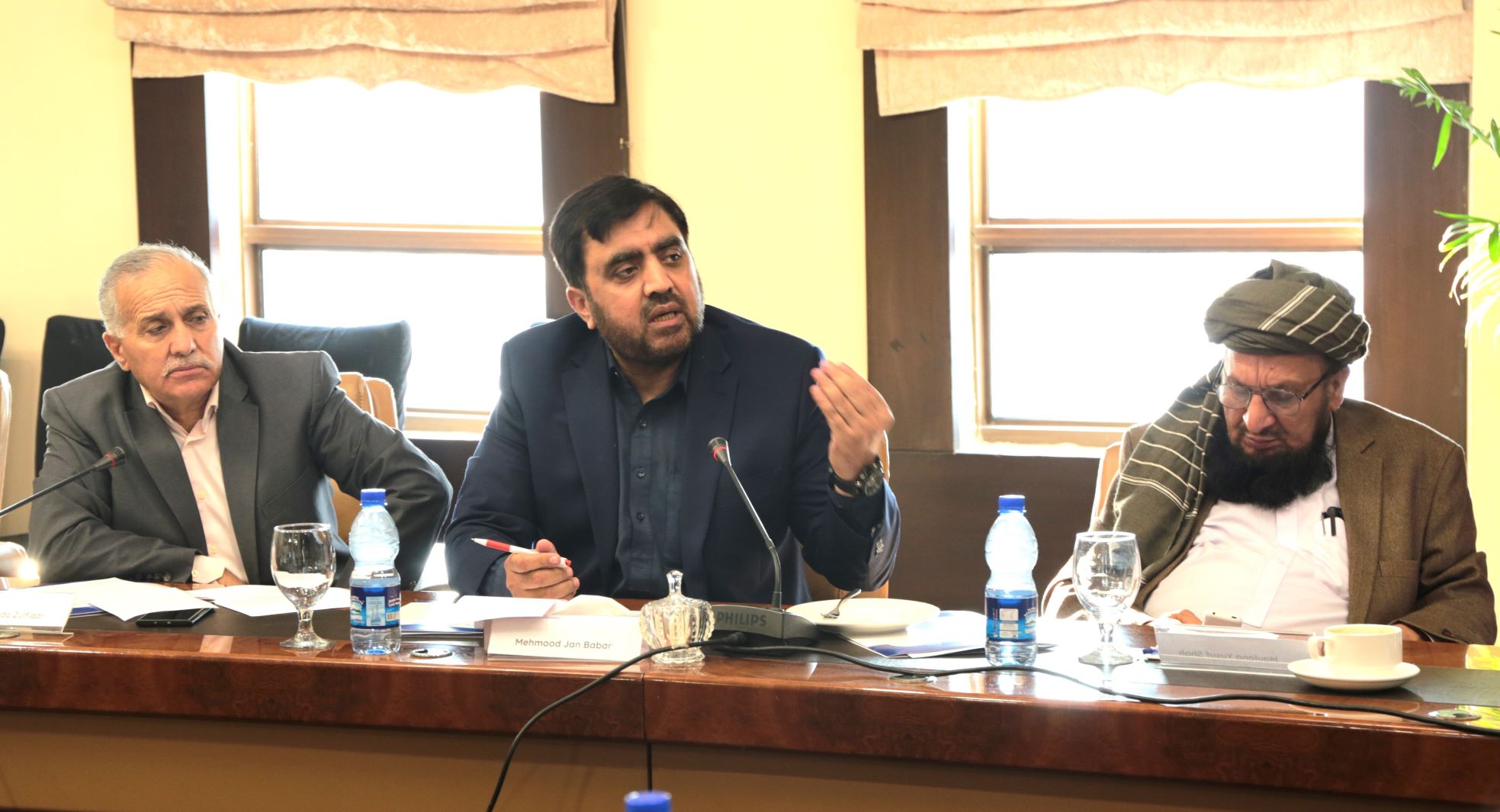Supporting the Afghan peace process: Pakistan’s position, interests, and policy options.
Pak Institute for Peace Studies held its 6th expert consultation on Afghanistan in Islamabad on December 5, 2022. The main themes of the consultation were “Emerging Afghan situation and its interface with the countries near and beyond” and “A review of emerging Pak-Afghan relations.” The event was sixth in a series of eight quarterly consultations on Afghan peace and reconciliation PIPS has been organizing since July 2021. Prominent academicians, former diplomats, retired army officers, journalists, and experts on security and Afghan affairs from Islamabad, Khyber Pakhtunkhwa, Balochistan, and Punjab participated in the discussion.
Participants emphasized the fact that Pakistan needs a complete reorientation of its policy towards Afghanistan in the wake of growing threats of terrorism in the country after the banned Tehreek-i-Taliban Pakistan (TTP) called off a ceasefire it had agreed to with the government earlier this year. The specialists also stressed that civil-military leadership, political parties, bureaucracy and ulema should be on the same page to tackle the threat, with the warning that there is a possibility of a new wave of terrorism gaining steam in the country.
Former National Security Adviser Lt Gen (retd) Nasser Khan Janjua taking part in the discussion said that TTP had become a spoiler in Pak-Afghan relations. He added that Pakistan required reorientation of its policy towards the Taliban regime in Kabul. “Pakistan’s relations with Kabul are likely to come under stress and we have to manage it,” he noted. Nevertheless, he expressed hope that the change in military command will lead Pakistan into a better and secure future.
Mirwais Yasini, former first deputy speaker of the Lower House of the Afghan Parliament, contended that corruption had relatively decreased, and law and order situation had improved under the Taliban rule but the system was not properly working, which has become a major challenge. He further said that both Afghanistan and Pakistan have committed grave mistakes by fighting wars for others. He implored that this should stop.
Former Defence Secretary Lt Gen (retd) Naeem Khalid Lodhi remarked that Pakistan should rectify its flawed decision making system. He said that this has to be understood which unhidden forces were behind the still unsettled issue of Afghanistan. “The problem of Afghanistan has political, social, economic, and military dimensions,” he said, adding that the establishment couldn’t handle it alone. He also called for regularizing movement on Pak-Afghan border.
Defence analyst Major General (retd) Inam Ul Haque said that Pakistan’s relations with Afghanistan had been affected continuously due to the presence of TTP on the latter’s soil. He said that Pakistan should talk with the ideologue group present in the ranks of Taliban to force the militant group, TTP, to lay down its arms.
Mindful of the troubles faced by the Afghan women, the bureau chief of Aaj News, Peshawar, Farzana Ali expressed her concerns about the worsening human rights situation for the Afghan women. She lauded the government’s move of sending Hina Rabbani Khar as the head of diplomatic mission to Kabul. Moreover, she suggested that every outgoing delegation from Pakistan should include a women in order to send a strong message to the Afghan Taliban that they ought to pay attention to the women of Afghanistan who constitute about 50% of the country’s population.
Mehmood Jan Babar, a senior journalist and an expert on Pak-Afghan Affairs, talked about decreasing crime rate in Afghanistan since the takeover of Kabul by Afghan Taliban last year. Moreover, in an overview of the current governance system in Afghanistan, he told that the bureaucratic machinery is in good shape and willing to work even in difficult conditions. He underscored that the TTP is not budging from their original demands in return for their relocation to Pakistan.
Former Ambassador Muhammad Ayaz Wazir also endorsed the viewpoint of other participants that Pakistan’s relations with Afghanistan could not improve until its civilian government and military establishment come on the same page with regard to Afghan policy. Morover, he was of the view that the longstanding issue of Durand Line is mutual, and both the neighbouring countries need to reach an understanding on it. He said that both the neighboring nations should respect each other’s sovereignty and avoid interfering in each other’s internal affairs.
Dr. Minhas Majeed Marwat, an assistant professor at the department of international relations at the University of Peshawar, highlighted the importance of a stable Afghanistan for regional as well as global powers. She said that it would be highly disturbing for regional powers like China and Russia if Afghanistan became once again a hotbed of international jihadism.
Yar Muhammad Badini, a Quetta-based writer and journalist, said that the solution to Balochistan insurgency lies in free and fair elections. He told that the introduction of merit in the province will prove productive in cooling down the indignant youth. He warned of the possibility of Baloch rebels allying with the jihadist groups if delay is maintained in addressing their grievances.
Central Secretary General Jamiat Ulema-e-Islam-Sami (JUI-S) Maulana Yousuf Shah said that the proscribed TTP was ready for holding peace talks with Pakistan. He added that problems with Pakistan was that its political parties and military establishment were not on the same page on this issue.
Maulana Abdul Qadir Luni, head of JUI-Nazriyati, Balochistan, also maintained that dialogue with the militant group was the only way to find a solution to the problem. Moreover, he endorsed the assertion of Mehmood Jan Babar that the TTP won’t give up on their three demands in return for their comeback to Pakistan. He also claimed that Afghanistan is reltively more peaceful than it was in the previous regime and that trade has witnessed a boost since the coming of the Afghan Taliban into power.
Baqir Sajjad Syed, a senior journalist, expressed his worries that the the security situation in Afghanistan will worsen as the Afghan Taliban still maintain links with international jihadist organizations. This, he said, would remain a thorn in its relations with neighbors and the international community. He said that the current dispensation in Kabul is non-inclusive and needs to become open to all elements of the Afghan society.
Former senator Afrasiab Khattak concluded the discussion by saying that Pakistan should make a critical review of its 40-year-old Afghan policy. “The issue of terrorism is also needed to be reviewed to face the emerging challenges in this connection.” He also suggested that Pakistan should formulate a new Afghan policy that should focus on making good relations with the Afghan state, and its people.
Earlier, Director PIPS Muhammad Amir Rana in his welcome note said that the purpose of the consultation was to take a review of the Pak-Afghan relations in the face of increasing terrorist activities of TTP in Pakistan.




